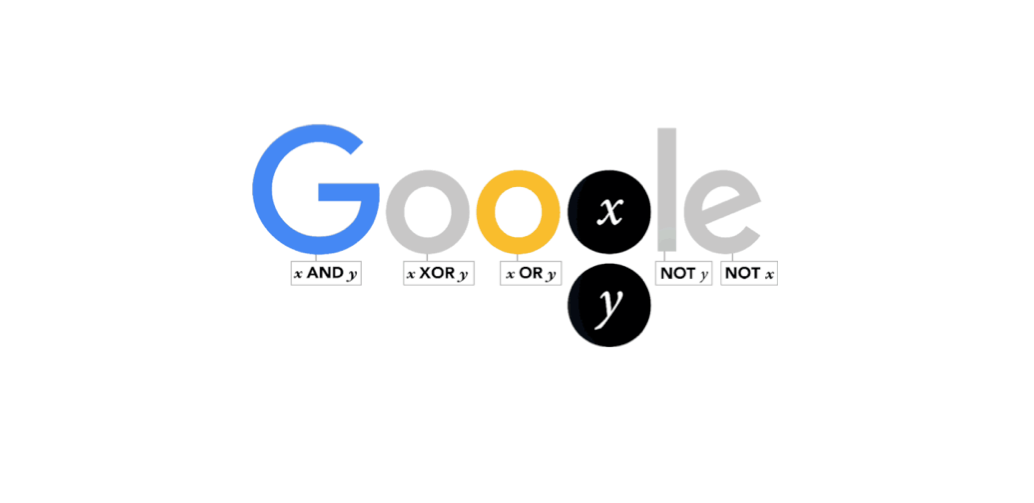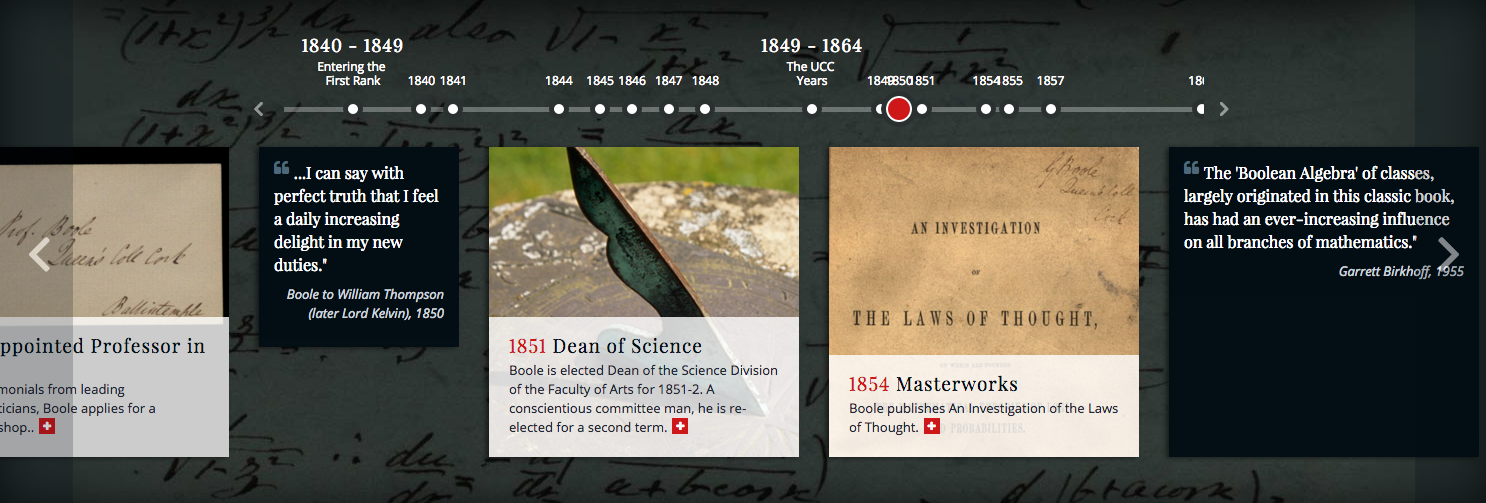You may have seen today’s Google Doodle celebrating George Boole’s 200th birthday, or birthday No. 11001000!
George Boole was an English mathematician, philosopher and logician who left school at the age of sixteen and never attended a university, he taught himself languages, natural philosophy and mathematics. In 1844, he was awarded the first gold medal for mathematics by the Royal Society.
Boole was deeply interested in the idea of expressing the workings of the human mind in symbolic form, and his two books on this subject, The Mathematical Analysis of Logic (1847) and An Investigation of the Laws of Thought (1854) form the basis of today’s computer science and electronic circuitry. He also made important contributions to areas of mathematics such as invariant theory (of which he was the founder), differential and difference equations and probability. Much of the ‘new mathematics’ now studied by children in school – set theory, binary numbers and Boolean algebra, has its origins in Boole’s work.
In 1849, Boole was appointed first professor of mathematics in Ireland’s new Queen’s College (now University College) Cork and taught and worked there until his tragic and premature death in 1864. In 1855, he had married Mary Everest, a niece of the man after whom the world’s highest mountain is named. The Booles had five remarkable daughters including Alicia, a mathematician, Lucy, a professor of chemistry, and Ethel (Voynich), a novelist and author of The Gadfly.
University College Cork have a website dedicated to the year long celebration of George Boole’s bicentenary (George Boole 200), view the timeline of life events to find out more:


